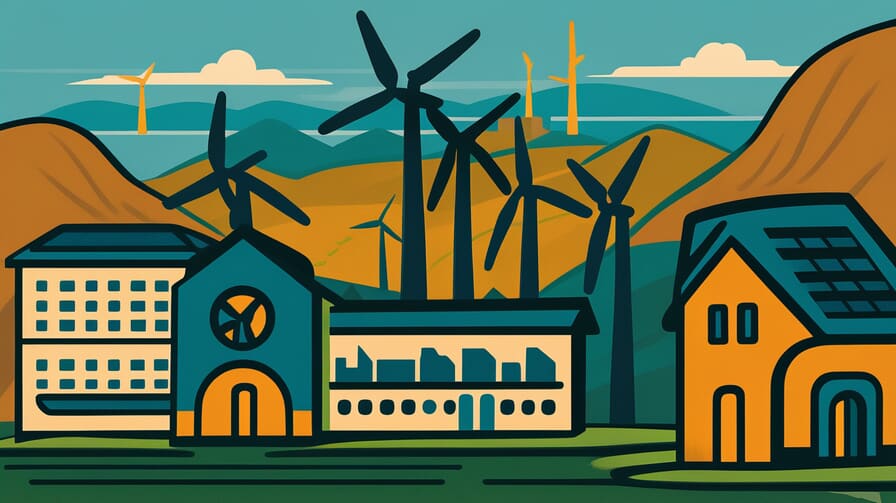[Disclaimer] This article is reconstructed based on information from external sources. Please verify the original source before referring to this content.
News Summary
The following content was published online. A translated summary is presented below. See the source for details.
The European Union continues to make significant strides in renewable energy adoption, with renewables accounting for approximately 42.5% of net electricity generation in early 2025. This represents a slight decrease from 46.8% in early 2024 but remains a substantial share. The EU has set ambitious targets, aiming for renewables to comprise at least 42.5% of its total energy consumption by 2030, with an aspirational goal of 45%. As of 2023, renewables made up 24.5% of the EU’s gross final energy consumption. Solar power has become increasingly prominent, becoming the largest source of electricity in the EU for the first time in June 2025, contributing 22.1% of electricity generation. Denmark leads EU countries with 88.5% of its electricity from renewables, followed by Portugal and Croatia. The EU has implemented significant policy changes since 2022, including the revision of the Renewable Energy Directive and the launch of the REPowerEU Plan, to accelerate renewable energy deployment and enhance energy independence.
Source: Eurostat News
Our Commentary
Background and Context

The European Union has long been at the forefront of the global transition to renewable energy. This commitment stems from a combination of factors, including climate change mitigation, energy security concerns, and economic opportunities in the green technology sector. The EU’s renewable energy policies have evolved significantly over the past decades, with increasingly ambitious targets set to reduce dependence on fossil fuels and decrease greenhouse gas emissions.
Expert Analysis
The EU’s progress in renewable energy adoption is impressive, particularly in the electricity sector. The 42.5% share of renewables in net electricity generation by early 2025 demonstrates significant advancement. However, the slight decrease from 2024 highlights the challenges of maintaining consistent growth in renewable energy share, possibly due to factors such as weather variability affecting wind and solar output.
Key points:
- The EU aims to increase renewables’ share in total energy consumption to 42.5% by 2030, a substantial increase from the 24.5% achieved in 2023.
- Solar power’s emergence as the largest electricity source in June 2025 marks a milestone in the EU’s energy transition.
- Significant policy changes, including the REPowerEU Plan and the revision of the Renewable Energy Directive, are driving rapid renewable energy deployment.
Additional Data and Fact Reinforcement
The EU’s renewable energy landscape shows diverse progress across member states:
- Denmark leads with 88.5% of electricity from renewables, followed by Portugal (86.6%) and Croatia (77.3%).
- Sweden tops overall renewable energy consumption at 66.4% of gross final energy consumption (2023 data).
- The EU exceeded its 2020 renewable energy target, reaching 22.1% against a 20% goal.
Related News
The EU’s renewable energy push is closely tied to its efforts to reduce dependence on Russian fossil fuels following the 2022 energy crisis. This has led to accelerated investments in renewable infrastructure and policy reforms to streamline project approvals. Additionally, the EU’s commitment aligns with global efforts to combat climate change, as highlighted in recent international climate conferences.
Summary

The European Union continues to make significant progress in renewable energy adoption, driven by ambitious targets and comprehensive policy initiatives. While challenges remain, particularly in maintaining consistent growth and addressing variability in renewable energy sources, the EU’s commitment to a sustainable energy future remains strong. The coming years will be crucial in determining whether the EU can meet its 2030 targets and further cement its position as a global leader in the renewable energy transition.


